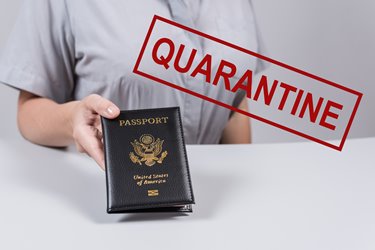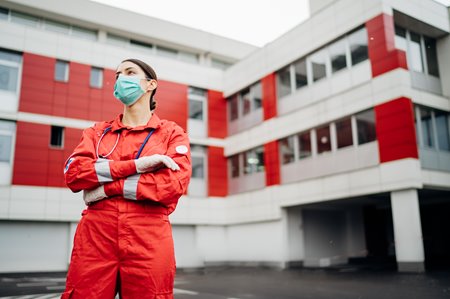.png.aspx;?width=450&height=450)
International Arrivals in the COVID-19 Era
Requirements for international arrivals will differ significantly by country as the COVID-19 pandemic progresses. While a handful of nations have essentially maintained their pre-pandemic entry requirements without modification, most now demand at least health screenings upon arrival for travelers, if not the presentation of a “negative” COVID-19 test result. Other governments have made quarantines a fixture of their international arrivals policy independent of the aforementioned procedures, with exact policies differing significantly by country and often dependent upon a travelers’ country of origin, recent travel history, COVID-19 test results, and other variables.
Therefore, the best resource for exact requirements will be the websites and social media accounts of governments themselves – in particular, of their tourism, foreign affairs, and/or public health departments or ministries. Airlines will also serve as a useful resource, as they have been forced to heavily coordinate with international governments to ensure continuity of their operations.

Quarantine in a Government Facility
For those asked to quarantine upon arrival, governments may allow self-quarantine at a location of the visitor’s choice or may require that visitors spend their quarantine period in a government-run facility. In general, mandatory quarantine periods run 14 days. The quality of such facilities can vary dramatically even within the same country, and very careful research should be done as to the standards of said facilities before embarking upon travel to where a quarantine period is required.
Additionally, many government-run facilities will require travelers to pay for their own quarantine period as calculated by a set daily rate, which generally does include meals. The English-language skills of staff posted at these locations may vary and should not be assumed unless explicitly guaranteed by government officials. As a general rule, travelers are barred from leaving these facilities for the full 14 days. Those who develop symptoms or test positive for the disease should expect to be moved to even more isolated facilities and provided with medical care (likely at their expense).

Quarantine in Personally Secured Accommodations
Individuals who can self-quarantine are often asked to download some kind of mobile tracking app on their phones for government authorities to verify that quarantine measures are being followed and to track any possible development of symptoms. The contact information for a local resident is oftentimes also asked as a failsafe in case an individual appears to have broken quarantine measures or else cannot be tracked for whatever reason. Penalties for breaking quarantine can be severe, including monetary fines, potential jail time, or even deportation. Thus, those who quarantine in their own personally secured accommodations will need to carefully prepare for their travel ahead of time. Preparations will include identifying one or more local contacts who can perform the traveler’s essential errands, namely for deliveries of food and other supplies.
Communications with government authorities, including for movement verifications and wellness checks, should be taken seriously, as failure to respond in a timely manner may risk incurring severe penalties. To this point, telecommunications such as internet access and functional cell or landline service should be guaranteed prior to arrival. Certain countries may offer the option (or mandate the requirement) of a COVID-19 test during quarantine, the results of which may then allow travelers to be released earlier than 14 days. Should travelers develop symptoms or test positive, expect government authorities to medically intervene after being notified, though specific procedures will differ according to country.
.jpeg.aspx;?width=450&height=300)
Domestic Travel and Final Thoughts
Some countries may require quarantines even for domestic travel within their own borders, particularly for travelers hailing from areas with known outbreaks. In general, such quarantines are much more difficult to enforce as they are frequently mandated by state and provincial governments who do not have the same border controls and tracking resources as national governments, but they should also be taken seriously.
Anecdotal experiences have differed widely among travelers in terms of how strictly quarantine requirements are enforced, even at the national level, but all arrivals should operate with full enforcement as their baseline assumption and should adhere to all relevant government directives accordingly. In the lead-up to departure, travelers should very carefully monitor existing requirements, as they are subject to change and many have been altered within short timeframes with little advance notice. Modifications to existing policies, particularly when executed with immediate effect, may provoke on-the-ground confusion even among officials, and a copy of the most recent requirements should be carried at all times for the benefit of all.
This document is written by GardaWorld.
